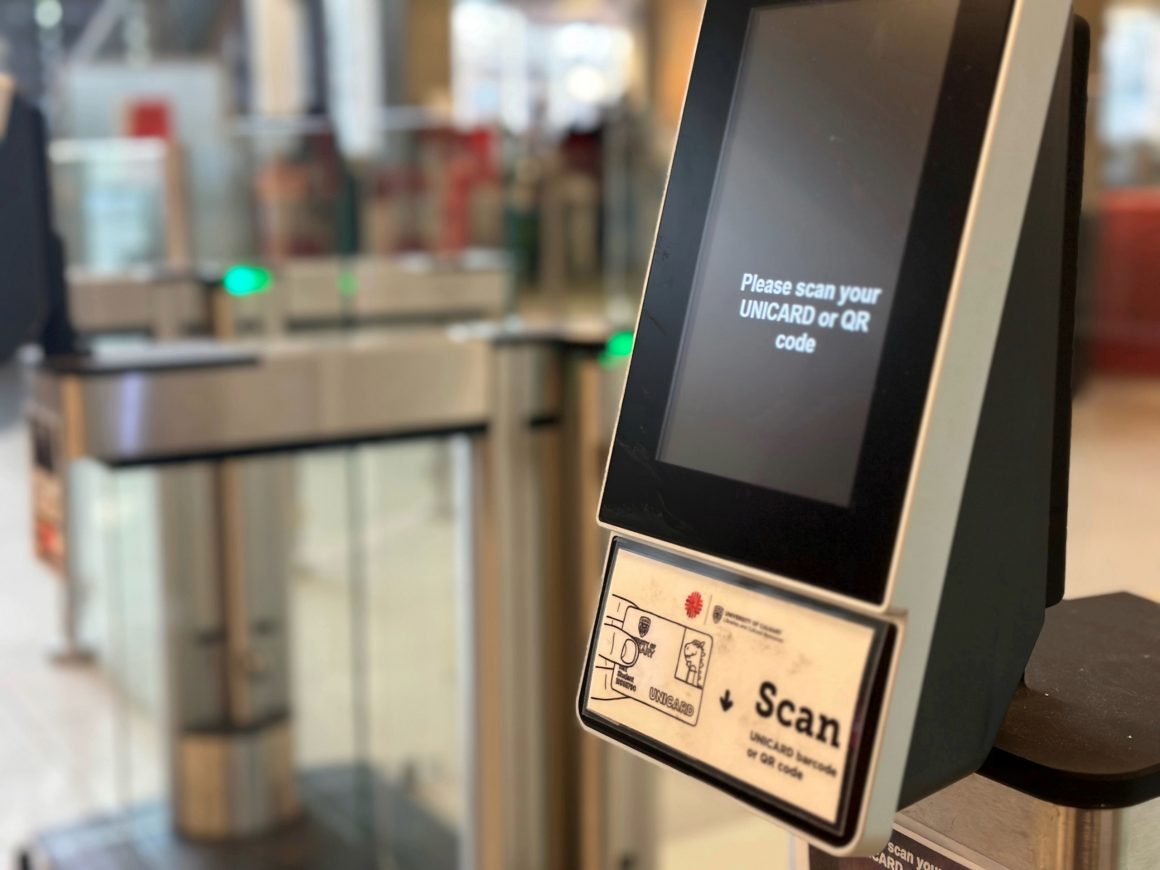
One semester later, the TFDL turnstiles are a game-changer for students
By Josie Simon, January 7 2025—
The fall semester has brought a wave of positive change to the Taylor Family Digital Library (TFDL) at the University of Calgary, marked by the successful introduction of access turnstiles requiring students to scan their Unicard to enter. While some may have viewed this transition as an inconvenience, it has emerged as a transformative enhancement that prioritizes student security and accessibility in a vital academic space.
The decision to install turnstiles came after students asked for better security and exclusive access to library resources. According to Claudette Cloutier, Associate University Librarian, this feedback was a key driver in implementing the new system. In the past, the library often got crowded with non-students using the facilities. This raised safety concerns and made it hard for paying students to find space. With the turnstiles in place, students can now enter a secure environment without distractions from overcrowding. They also have 24-hour access, allowing them to plan study sessions around their own schedules.
Since the turnstiles were installed, the library’s atmosphere has changed significantly. Students have noticed more available seating, and many appreciate the quieter space, which is better for studying and collaborating. Cloutier confirmed this positive shift, noting that the new access policy has focused on meeting students’ needs and has created a sense of community within TFDL.
Initially, some students were worried about always needing their Unicard, but this concern has mostly disappeared. Scanning the card for entry has quickly become routine. In a time when security is crucial, using a familiar card for access is seen as a minor inconvenience. The benefits that have come from these changes make it worthwhile.
While the turnstiles prioritize student access, it’s important to address concerns regarding community involvement. Critics might argue that community members will feel unwelcome under these new restrictions, but that’s not the case. Cloutier emphasized that the TFDL remains open to alumni and community members, with provisions for access through a straightforward registration process at a kiosk. This approach strikes a balance between ensuring student access and maintaining community engagement.
Moreover, the library is still committed to supporting community-based research and other scholarly activities. Those with intentional use of library resources can still gain access, reinforcing the idea that while student needs come first, the TFDL does not completely shut out the wider community.
The advantages of the turnstiles are obvious: better security, easier access and a stronger sense of community on campus. Seeing the university listen to students and take action that directly impacts their daily lives is encouraging. This proactive approach is important in today’s world, where schools must adapt to their students’ changing needs.
Looking forward, there may be even more improvements to the entry system. For example, digital ID access could make the process even quicker, letting students enter with a simple swipe on their smartphones. As technology advances, the library should continue to evolve to meet student needs.
In summary, the changes at TFDL this fall have improved how students use the library. The turnstiles are more than just barriers; they represent a commitment to a safer and more accessible environment for all students. The improved atmosphere in the library supports better study habits and shows that students’ opinions matter. This initiative highlights the impact of student feedback and serves as an example of how positive changes can be made on campus.
This article is a part of our Opinions section and does not necessarily reflect the views of the Gauntlet editorial board.
